More than 90% of Chinese people have lactose intolerance. Why do so many people drink lattes?
Professional coffee knowledge exchange more coffee bean information please follow the coffee workshop (Wechat official account cafe_style)
Are you used to having coffee outside and just want to order a latte?
According to various survey reports, Chinese people like milk coffee significantly more than other black coffee. But you know what? Several surveys over the past few decades have found that the proportion of lactose intolerance among adults across China is mostly more than 90%, and even in ethnic minority areas in the northwest, the probability of lactose intolerance is about 80%.
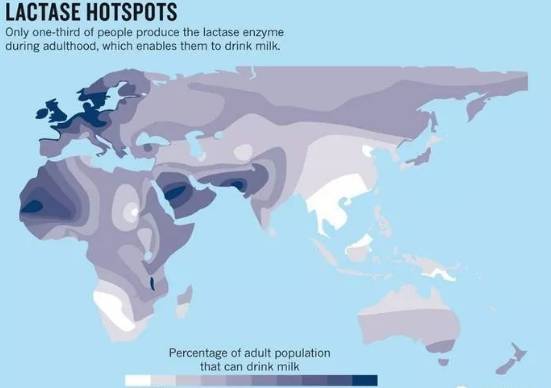
In the Old World (Old World) lactose tolerance map, the darker the color is, the higher the proportion of lactose tolerance is.
Lactose intolerance is mainly due to the lack of lactase in the small intestine that breaks down lactose, so lactose enters the large intestine when it is not completely broken down. It is decomposed by large intestinal bacteria to produce a large amount of gas, water and acidic substances, resulting in hiccups, vomiting, farting, abdominal distension, abdominal pain, diarrhea and sour stools. Of course, the same lactose intolerance, everyone's symptoms are also different, may be abdominal pain, may also be abdominal distension, diarrhea, or farting, and the degree of symptoms vary greatly. Your next-door neighbor likes to fart when he drinks milk. He probably won't tell outsiders about it for the rest of his life.
Chinese people usually have enough lactase to break down lactose when they are young, so that they can drink breast milk smoothly, but in adulthood, most people lack lactase to break down lactose. Although a survey by Sichuan University in 2006 found that 80.3% of Chinese adults could tolerate 6.25 grams of lactose (about 200 milliliters of milk) without any adverse symptoms. But this still leads to the question the editor wants to ask: "more than 90% of Chinese are lactose intolerant, so why do so many people drink lattes?" ".
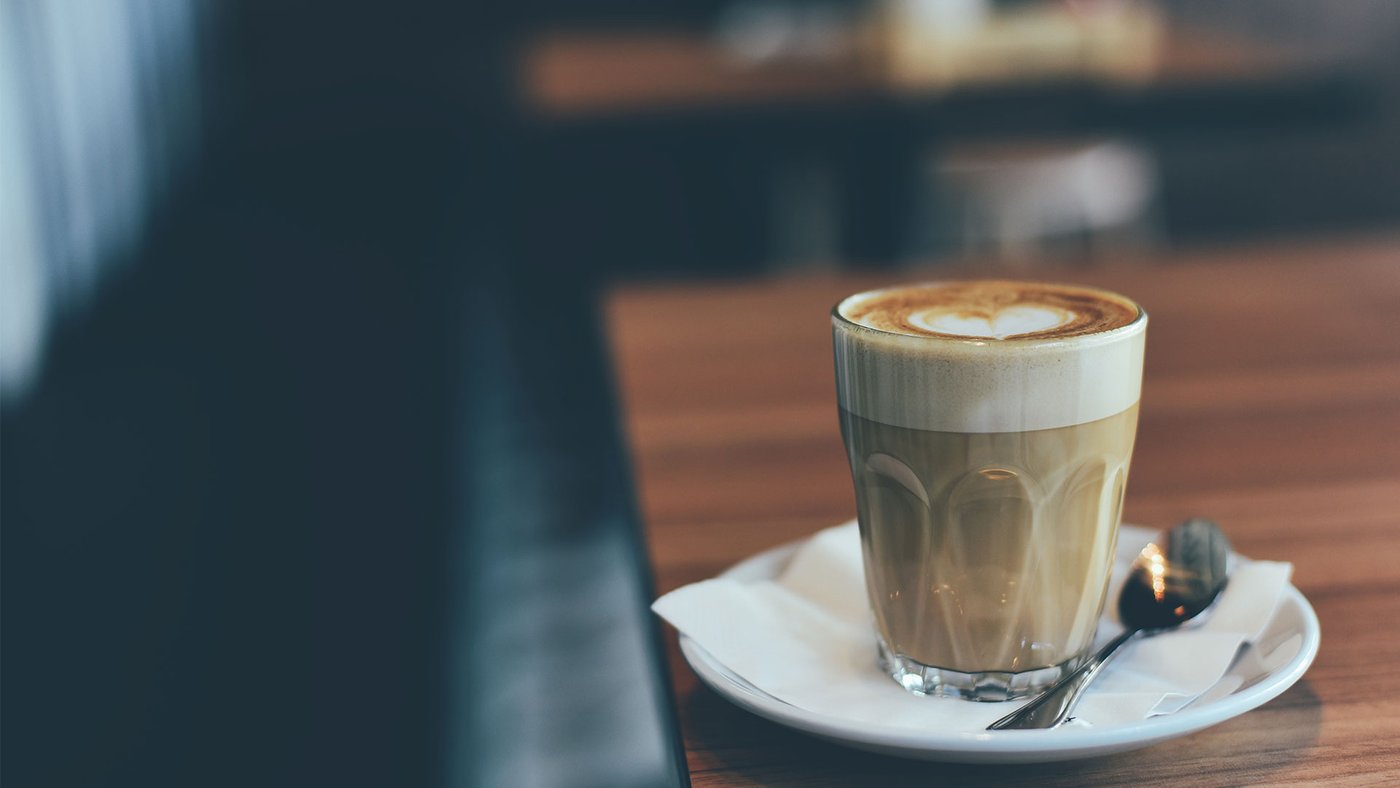
There may be many answers, but the editor believes that the biggest problem is that the coffee we can drink is too simple. People have different preferences. In order to cover up the unsatisfactory taste, the easiest way is to change the latte and use the milk flavor to cover up the unsatisfactory coffee taste. Even if you have lactose intolerance, the reaction of gastrointestinal discomfort is not as bad as coffee in a timely manner. Some people even do not know that their gastrointestinal problems come from lactose, but continue to eat a variety of probiotics to suppress the consequences of lactose intolerance.
Why is the coffee we can drink so simple in taste? Perhaps it is because all kinds of coffee have been introduced since the beginning of reform and opening up, when people continued to drink canned or instant coffee, which is mainly made from robusta beans. Robusta beans are widely used by manufacturers such as canned or instant coffee because they are not afraid of insect bites, sunlight, high output, low price and good refreshing effect. However, this kind of beans are usually bitter because they do not have a charming and delicate flavor and are deeply baked. Even because they are set to be low-cost products, which can only be won by quantity, most of the planting methods are very rough, resulting in the smell of soil, herbs, and even similar to charred tires and plastic. It's hard to swallow without adding some milk and sugar.

After instant and canned coffee, Starbucks, the forerunner of the Chinese coffee shop trend, made the problem even more serious. Because at the beginning, Starbucks wanted to introduce Italian espresso espresso to the United States. All coffee flavors usually favor espresso, which is extremely deep and bitter.
Here's the problem: coffee lovers who are the first to drink coffee, their taste buds have been trained so that they don't think it's coffee until they drink it. Later coffee brands usually follow the same model, adjusting the taste of coffee to "more suitable for the local market."
Therefore, even if the coffee that many people like is not readily available by the side of the road, because there are not many choices, the best way is to choose latte. Cover up the otherwise unacceptable flavor of coffee.
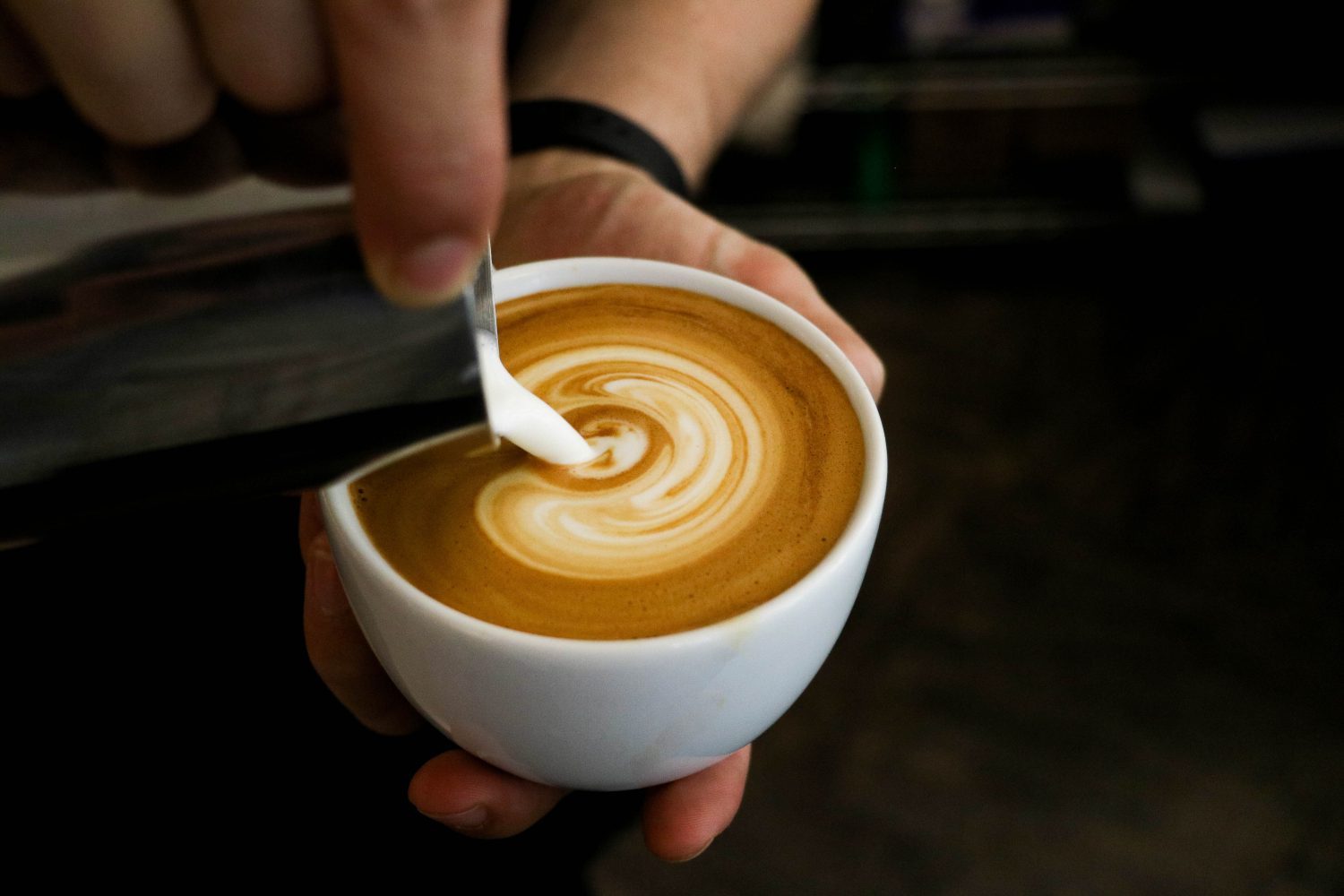
But there is more than one taste of coffee. Is it possible that you, who often drink lattes, do not want lattes, but a different flavor from those in the past? Around the world, there are many new forms of boutique coffee wave is slowly rising.
Boutique coffee, you should use the right concentration to show the flavor of the coffee itself, if you have experienced it, you will find that the original coffee taste is sweet rather than bitter. In order to present the most delicate and primitive coffee flavor, boutique coffee is usually shallowly roasted and less used in Italian coffee machines, because the Italian coffee machine uses high temperature and high pressure, which is easy to upset the balance of coffee, and the concentration of espresso extracted is high. the flavor is concentrated and strong, which is difficult to distinguish carefully. Of course, this is not to say that the Italian coffee machine can not use boutique coffee beans, but the manual brewing methods such as hand cups or siphon pots can more easily adjust the extraction parameters in order to show a complete and distinctive coffee flavor without adding any seasoning.

Of course, how to drink coffee is your personal choice and right, but in fact, coffee can also be very simple and pure. If you are used to drinking lattes, you might as well experience the wave of boutique coffee of the new generation, and perhaps you will also find new possibilities for coffee.
END
Important Notice :
前街咖啡 FrontStreet Coffee has moved to new addredd:
FrontStreet Coffee Address: 315,Donghua East Road,GuangZhou
Tel:020 38364473
- Prev
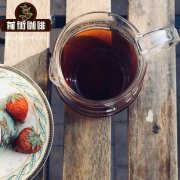
What is white honey, red honey, black honey treatment and their respective flavor characteristics Description
Professional coffee knowledge exchange More coffee bean information Please pay attention to coffee workshop (Weixin Official Accounts cafe_style) Honey treatment method is a kind of treatment method between sunlight and water washing method. This treatment method is most popular in Central America. Honey treatment combines washing and sunlight. It will first remove the peel of coffee and retain some pectin outside coffee beans, and then enter
- Next
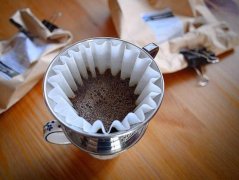
Hand coffee skills-what are the main factors that affect the flavor of coffee?
Professional coffee knowledge exchange more coffee bean information Please follow the coffee workshop (Wechat official account cafe_style) in our store provides five kinds of hand filter, namely Kalita filter cup, HARIO cone filter cup, KONO cone filter cup, BONMAC single-hole filter cup, flannel filter and three kinds of hand pot, the aim is to enable all customers to use the fun of different filters.
Related
- Beginners will see the "Coffee pull flower" guide!
- What is the difference between ice blog purified milk and ordinary milk coffee?
- Why is the Philippines the largest producer of crops in Liberia?
- For coffee extraction, should the fine powder be retained?
- How does extracted espresso fill pressed powder? How much strength does it take to press the powder?
- How to make jasmine cold extract coffee? Is the jasmine + latte good?
- Will this little toy really make the coffee taste better? How does Lily Drip affect coffee extraction?
- Will the action of slapping the filter cup also affect coffee extraction?
- What's the difference between powder-to-water ratio and powder-to-liquid ratio?
- What is the Ethiopian local species? What does it have to do with Heirloom native species?

